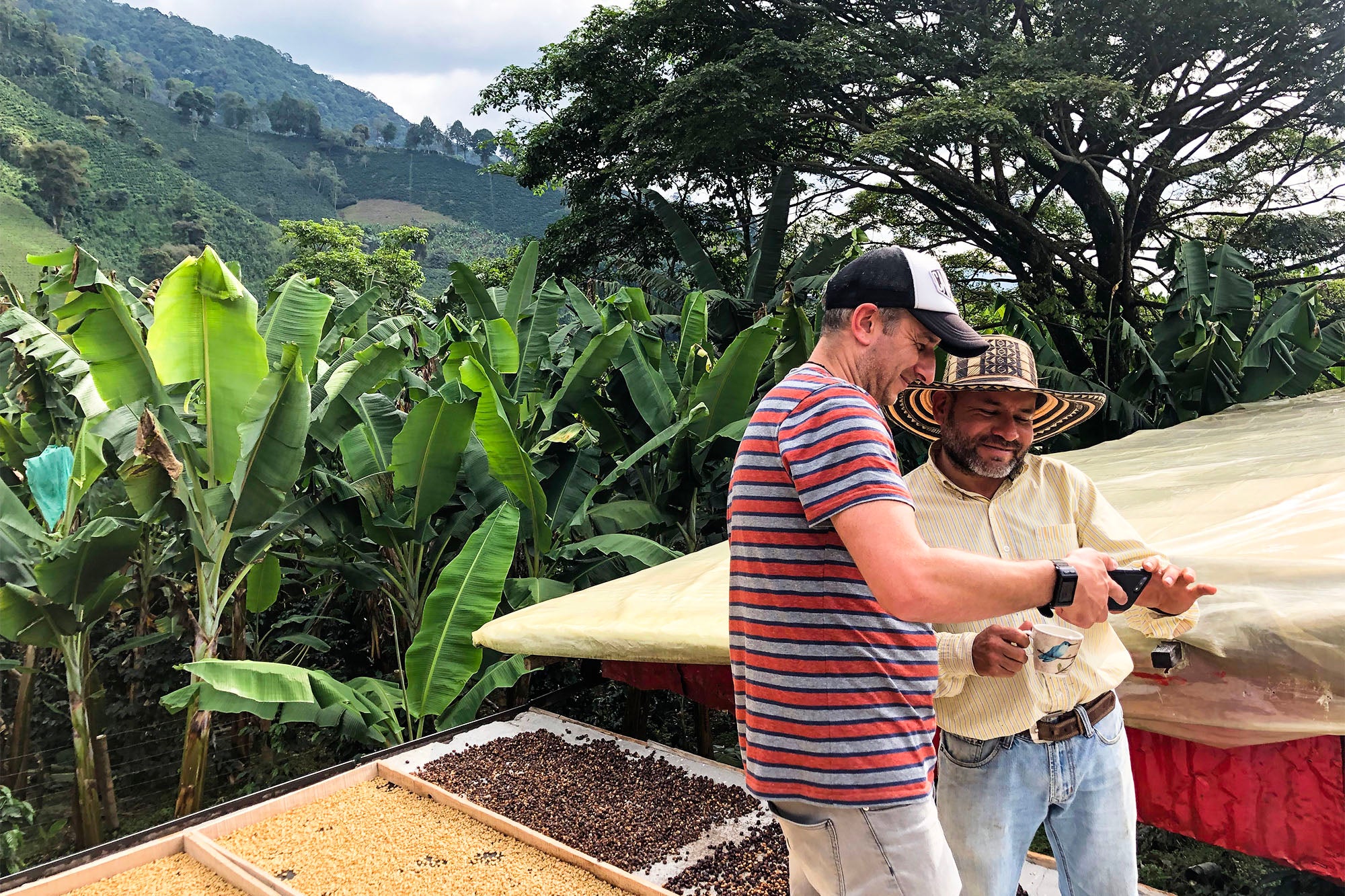The Australian Made, Australian Grown logo was a totally new campaign to me as a recent arrival from the UK, however it is a campaign I very quickly and clearly understood. It communicated effectively an encouragement to me as a consumer to choose Australian made or grown goods and services – a direct and clear support of investment in Australian business driving growth and awareness around authenticity, transparency and provenance. Source

Source: instagram.com/australianmadecampaign
This campaign got me thinking about how amazing it would be to have this level of support, awareness and understanding from consumers and industry peers about the coffee sector. An opportunity to experience the amazing sensory world of coffee and also actively engage in discussion and action around important and challenging topics such as transparency, authenticity, equity, diversity, inclusion, price, environment, etc. We could see a proactive fostering of collaboration and drive positive change as a united community…then in the same split second I was reminded immediately of how complex the coffee value stream is and how hard these topics are to articulate.

Approximately 125 million people worldwide depend on coffee for their livelihoods (Source).
Many of these people are smallholder farmers who face constant environmental, economic, political and commercial challenges across a variety of different countries and infrastructures. Coffee is a boom and bust agricultural commodity and as a result is intrinsically unstable, not allowing producers the ability to plan or provide financial security as a result of massive shifts in supply and demand and the subsequent pricing fluctuations.

Throughout 2019, ‘Green Coffee Price Crisis’ is a term that has hit mainstream news across the world with coverage from the BBC, the LA Times and also the Financial Times suggesting possible solutions to stabilize global prices and even a call to action for leading corporate coffee companies to help cover farmers costs. Global coffee prices tumbled to a 12-year low in 2019 making it increasingly difficult for coffee farmers to make ends meet, as a direct result the world media recognise this is an urgent issue, asking all of us questions about the future and where the coffee used in our flat whites is going to come from if….
- coffee growing does not provide a viable living (Sustainability)
- climate change creates an environment too harsh that coffee cannot grow (Climate Change)
- all the skills needed to farm coffee will be lost with future generations leaving for cities to find work (Generational Transition)
These topics are not new to the broader coffee community and ones we have been working hard to address and resolve for a long time through education and awareness using the amazingly collaborative community of specialty coffee. I’ve been lucky enough to be involved in the world of coffee on and off over the past 20+ years, most recently joining the inspiring humans at Five Senses as Director of Coffee. Previously I worked with World Coffee Events and the Specialty Coffee Association, closely collaborating with the coffee community globally as the International Director of Re:co Symposium, a gathering of the greatest minds and most influential thinkers in the coffee industry. It’s the human connection that exists at the core of the international coffee community which is a constant source of potential and opportunity to collectively drive positive change at a systemic level.

Five Senses Coffee has been actively involved and invested in international collaboration over the years, and it’s great for me personally to add my contribution to that effort and shout out to you all about an initiative we are participating in this year which is enabling open dialogue and action around the green coffee price crisis – it’s called the Specialty Coffee Transaction Guide.

Graph from article ‘Coffee needs a mechanism to stabilise prices‘ published on the Financial Times.
Green coffee prices have historically been determined by commodity price references (Intercontinental Exchange – ICE Arabica Coffee C Futures Market). In most cases these prices do not cover the full cost of production and go nowhere near what is needed to support the livelihoods of coffee farmers and their families. As previously mentioned, in 2019 commodity coffee prices have been hovering at historically low levels and as an industry we can’t just sit back. Even without entering into a discussion around equity and ethics, the basic fact is we need to pay prices for green coffee which rewards quality and provides revenue to make coffee growing a viable and sustainable livelihood – if this doesn’t happen then the future of the coffee we love and rely upon for our livelihoods, is in real danger.
The Specialty Coffee Transaction Guide is a project by researchers at Emory University (Atlanta, US); in a nutshell 38 producers, roasters, importers and exporters, known collectively as ‘data donors’, provided detailed data about exactly what they paid for specialty coffees around the world, including information about quality, region, lot size, certifications and more. This data was then anonymized and amalgamated to produce the 2018 Transaction Guide (which has now been superseded by the 2023 Transaction Guide.)
The Transaction Guide contains tables and figures which provide important contextual information for green coffee sellers and buyers to use in future price negotiations; this is a move away from using the current commodity price as a starting point for price discovery and allows an informed discussion around the true ‘value’ of a coffee taking into account variables such as quality, lot size, etc. This encourages greater communication between everybody involved, drives transparency and fosters a greater level of openness and trust.

Hypothetical specialty coffee transaction examples from the Specialty Coffee Transaction Guide.
Five Senses Coffee have contributed contract data to each edition of the Specialty Coffee Transaction Guide since 2018 along with fellow Australian coffee legends Melbourne Coffee Merchants, Upstream Coffee Imports, Rumble Coffee, Seven Seeds and Paramount Coffee Project – this is true industry collaboration on an international level, taking action together to evolve and protect the future of the specialty coffee sector.
Impacting people positively has been at the core of Five Senses Coffee from the very beginning and is the foundation of our coffee program. It’s a philosophy which flows through every aspect of our culture from relationships with producer partners, customers, competitors and our peers – a culture which is evident in this piece of industry collaboration. The Specialty Coffee Transaction guide is not a directly consumer facing project like the ‘Australia Made’ initiative is, but one which shares very similar values and drives a very important call to action about the potential of collaboration, transparency and education across the entire specialty coffee community from consumer to producer. The potential is limitless and we’re super excited to share our journey with you as this evolves… every day is a school day in coffee.

2023 Transaction Guide News
Transparency is the cornerstone of trust, understanding and progression, and the Specialty Coffee Transaction Guide yet again delivers this in a big way!
The 2023 version has just landed providing a green coffee price discovery tool founded on actual contract data from 115x coffee actor ‘data donors’ from around the world of coffee. You can download a copy of the guide here in English or Spanish.



